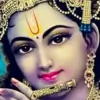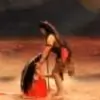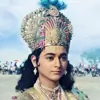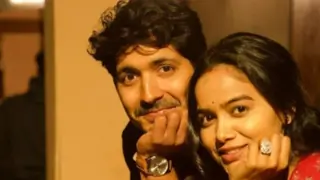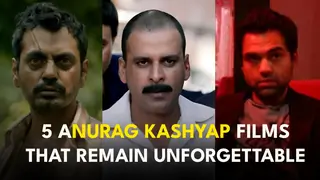I always obey Yudhishthir as Dharmaraaj or a righteous king.
After reading the whole 18 parvas of Mahabharat, I did not find any reason to dislike him. Even I have always found him as an admirable & lovable person, in each & every parva.
Here are the reasons for which I like him:
1) His Forgiveness & kindness: in Indian culture, forgiveness is always marked as a great Dharma. This has made difference between Greek epics & Indian epics. You will see only revenge & enmity within Iliad & Odyssey, but in Ramayan & Mahabharat that is neutralized by forgiving nature of warriors which makes them the greatest epics of world forever! So forgiveness is Dharma, it's a common virtue of Satta Guna. In Srimad Bhagabat Geeta, God Himself says, Adweshta sarvabhutanang maitrang karun eba cha/ Nirmamo nirahankara samadukkhasukha kshami'. In Ramayan too, Shri Ram says a similar thing to Lakshman when the later gets angry. In MB, Narad says Kshama cha paramam balam', kshama is the power. I know that we Kaliyug people use to ignore this kshama shakti of Yudhishthir & do not like this extreme goodness', extreme kindness' etc. But let's think once, if The Almighty Himself was not full of this kindness, then what our condition was!!! If God could not forgive us in regular manner then this universe would not exist!! All incarnations of God, all Prophets & all Messengers of God (in all Religions) have described the glory of this forgiving power. Also, this is a rare virtue which was fortunately in Yudhishthir as a blessing of Lord. Whenever I read MB, I become overwhelmed with his forgiving nature! He is there like a very beautiful living idol of this great virtue! I personally think that, we have many important lessons to learn from MB, within which Yudhishthir's forgiveness is one! I think if any human of this Kaliyug can accept even 1% of this infinite forgiving nature within own heart, he will be nearer to God.
Also, I would like to share some parts of MB to show the beauty of his kindness. He was well known by almost all Dwapar people for this virtue only. In Aadi parva where gandharva Angarparna (whose another name was Chitrarath) was defeated by Arjun, his wife rushed to Yudhishthir for saving her husband's life. By Yudhishthir's order, Arjun left Angarparna. Again in Van parva, where pandavas lived in Dwaitavan, the deers of that place prayed to Yudhishthir only so that they leave Dwaitavan in order to save their lives, that prayer was fulfilled too. He not only ordered to save Jayadrath's life after Draupadi haran but also made him free from daasatwa, because he knew then by his own experience the extreme pain of a king to become a slave! I want to state another well known fact here, in spite of knowing that many readers don't like it. Recall the Chitrasen incident of Van parva. Duryodhan & co. went to see pandav's miserable condition, but by God's wish they themselves were caught by gandharvas. All the ministers of Duryodhan prayed to Yudhishthir & he could not refuse it due to his infinite kindness & forgiveness. Do we think that he should have refuse then? Then, dear friends, what is the difference between Yudhishthir & Duryodhan? I personally think that, for this nature, he was able to get Lord's mercy & blessings too, & Lord Himself joined his side in war.
2) Control of anger or suppressing anger: at some points it really seems that Yudhishthir had no anger at all! His power of controlling/suppressing anger was surprising & sometimes unbelievable! Definitely, this is related with his forgiving & calm nature. Also, it made him a good leader & good king. Just think once, if Bhim or Arjun were at his place as eldest brother, then they could not be able to be a good ruler due to their excess anger & haste nature. A good ruler always needs control of senses. Yudhishthir won in this point too. And this power is undoubtedly another great Dharma. Also, he knew it well that if he gets angry, then one single angry glance of him could burn the people who made him angry (in Sabha parva, Vidur said that, for saving Duryodhan & Co's lives he covered own face) as anger of Dharma is always very harmful for world. Also from this point of view we can understand why he always suppressed his anger.
3) Tolerance, patience & calmness: Yudhishthir is a peaceful & peace-lover person. I like this attitude very much. In order to save peaceful atmosphere within the whole family, he tolerated many intolerable incidents silently. This never means that he was not hurt by them, but he could bear with any situation calmly & patiently. We can recall the situation when within a jungle he suddenly found his dearest 4 brothers dead. He cried & mourned very much then but had control on his mind. If he lost his patience then, we could neither get the precious conversation between him & the yaksha, nor were the 4 pandavas alive. Also, a knowledgeable person (Gyani) can never be overwhelmed in grief (like The Lord says in Geeta). Yudhishthir proves this too both here & in Mahaprashthanik parva.
4) Truthfulness: also, Yudhishthir always spoke the truth & acted truthfully. When Bhim asked him to take 13 months as 13 years in vanvaas, he strongly replied that, I cannot do this. This will be a false activity'. We know that his chariot never touched the ground for this power of truthfulness. Here I must say that I never count his lie about Ashwathama's death in Drona parva, as it was necessary to save himself as well as for Dharmasangsthaapan (which was a very very greater cause than his own truth speaking Dharma, personal Dharma<< Universal Dharma), & also, he was ordered by God to do so.
5) Intelligence: Yudhishthir's intelligence is clear in finding the secret of lakshagriha. Also, he knew English in that era, which came in use during Vidur's advice. In his conversation with yaksha, we can see both his intelligence & knowledge of Dharma.
6) Devotion to Krishna: Yudhishthir knew who Krishna actually was, & he always surrendered himself to Krishna. He was always dependent on Krishna. This surrendership can be beautifully realized from some parts of Udyoga parva, especially when he sent The Lord as his messenger. He always obeyed Shri Krishna like a true devotee, even sacrificed his akhanda vrata of truthfulness when Shri Krishna ordered him to do so.
7) A sign of Dharma: apart from the points I listed above, he was very much obedient to his elders & was a perfect family member. Unfortunately his family hurt him again & again, but he never wanted to hurt his family back. He never wanted the terrible Kurukshetra war, till the last moment he tried whole heartedly to stop it, even accepting his own lose. When he sent the message to Duryodhan to do sandhi just by giving only 5 small parts of land, then he forgave them once again & wanted to forget all their vices with a happy ending. Despite of being the least responsible for the war, he took all the blames of it on his own shoulder after the war finished!! I always become emotional when he cried to Gandhari after war, I am that heartless one, the slayer of your sons, curse me, mother' or wanted to leave kingdom & go to forest again by giving everything to brothers. How many of us can take all blames on us in a similar situation? Kaliyug people must learn this from Yudhishthir, as blame shifting is a common nature of them.
I would like to state two more dialogues by others. When Karna knew his true identity from Shri Krishna, he told, do not expose this truth, if Yudhishthir comes to know that I am his elder brother then he will no more accept his kingdom & will handover it to me.' So we can see that, in spite of hating pandavas like enemies always, Karna knew what kind of person Yudhishthir was. Lord Krishna also said that, Yudhishthir never want to rule even the heavenly kingdom won by adharma, but want to rule happily a small piece of land won by Dharma.' How many of us can oppose these words uttered by God?
My personal opinion is, even if MB is an imaginary epic story (though I never believe this), the great author Vyasdev had put Yudhishthir on the head of all other pandavas (as eldest brother whose order can never be violated by youngers, also youngers treated him as their Guru, in many places of epic Bhim helplessly says, I could finish all evil but can do nothing as Dharmaraj is my Guru & he does not allow me to do so') only to establish the truth that, Dharma is always to be placed above everything. Dharma is always over physical strength, energy, and all kind of external heroic activities. To show it he placed Dharmaraj Yudhishthir as the leader of mighty Bhim & greatest archer Arjun. Thus the message became clear to us, physical power & skill can be glorified if & only if they are ruled & controlled by Dharma.' Without this guidance of Dharma, Bhim's extreme anger might cross its limit & did any adharma. We can recall a picture. After braking Duryodhan's knee at the last battle, Bhim was kicking his head. Then Yudhishthir scolded him, you have done whatever you wanted & your oath has been fulfilled. Now don't cross the limit of Dharma. Do not touch this man's head with your feet.'
Last but not the least, with my very small brain & understanding power, I never dare to judge the ocean like epic MB as well as any of its ocean like great characters. So I try to find Lord Krishna's opinion in every case. As a devotee I have complete faith on His words. From this point of view, I can never dislike the person chosen by my Lord for His Dharmasangsthaapan. The person who was always addressed as Dharmaraaj' by my Lord can never be a performer of any adharma, that's what I strongly believe.


